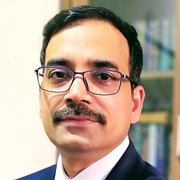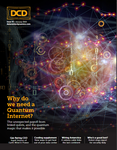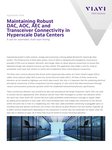While OTT players are easily minting money, communications service providers (CSPs) have been investing heavily in ensuring that the underlying network connectivity - whether FTTH, 4G or 5G - remains flawless for end-users. The concern for CSPs is how to maximize the return on investments made on these networks and minimize the risk of getting disrupted soon. To address this, CSPs will have to expand their role and focus on the enterprise ecosystems to capitalize on the growing digital economy to stay profitable and relevant.
Ecosystem orchestration - moving beyond connectivity
Globally, there are millions of telco systems and IoT devices generating various types of data. All the business entities desperately need relevant data that can be used to strategically drive their own digital transformation and grow their business manifold. So, the role of an ecosystem orchestrator who can unlock and monetize the data streams needed by the parties involved becomes key.
This gives an opportunity for the CSPs to expand their role beyond ‘connectivity providers’ and become ecosystem orchestrators, enabling a secure exchange of data in various enterprise ecosystems. To enable this, CSPs need a platform that can support vertical ecosystems, auditable transactions, and federated AI/machine learning with open APIs. Acting as a Data-Marketplace-as-a-service (DMaaS) provider in a B2B2B model, a CSP can facilitate the enterprises to use this platform to trade their data with other parties. To start, the CSP can leverage its current enterprise base in healthcare, public safety, energy, utilities, etc., where it already provides products and solutions for connectivity and experiences.
Telco and IoT data monetization
As a DMaaS provider, the CSP can give opportunities for the ecosystem participants to monetize their data by securely exchanging it with others needing it. This can help the CSP generate revenue every time any of the participants buys/sells data through this platform.
Enterprises know that Artificial Intelligence and Machine Learning algorithms can do a lot to manage 5G/IoT data pools, but the issue is that such data is either not easily available or is distributed across various locations. As a connectivity provider, the CSP is already sitting on a goldmine of telco and IoT data that could be monetized if made accessible and usable for various verticals – without compromising privacy, security, or data sovereignty laws.
As a DMaaS provider, it is possible for the CSP to also use this platform to sell and monetize its own telco and IoT data to its enterprise customers. Complying fully with the regulatory requirements, the CSP can sell the relevant user data by anonymizing and cleaning it, useful for business planning purposes based on usage pattern, user segments, or geolocation. Likewise, the anonymized and cleaned business data can be sold for understanding customer trends. The cleaned-up 5G network performance data can be bought by enterprise segments for planning & forecasting purposes. And the IoT sensors’ data can be monetized for forecasting and predictions by specific industries like agriculture, food processing and smart cities consortiums.
Accelerating 5G use-cases to unlock 5G value
As an ecosystem orchestrator, the CSP will also be better positioned to integrate new 5G use cases. The 5G use-cases are not just about higher speed connectivity but its application in transforming businesses. For any 5G use case to be up and running, multiple parties must be involved to collaborate. The CSP’s data marketplace platform connecting multiple parties can also accelerate innovation and unlock the value 5G brings. This can speed up the launch of new 5G use cases in industries like healthcare, manufacturing, energy and logistics, where CSPs can leverage their existing strong brand equity.
In the use-cases where there are tons of immovable sensitive data distributed across large datasets, the CSP can use federated learning to share the extracted insights with the parties involved. This can enrich the use-cases with government agencies, airlines and the defense sector, working to eliminate siloed data sets to see the ‘big picture’ and establish digital, data-driven ways of working.
Blockchain for security, SaaS for instant technology access
Since data security is a top concern in data economy, the CSPs must ensure that the platform they use for data sharing can support data traceability and auditability. Using private permissioned blockchain the CSPs can ensure that the data exchanged in the ecosystems is secured and well-orchestrated. This can enable the ecosystem participants to upload encrypted data streams that can be exchanged and monetized while complying fully with privacy and regulatory concerns.
The industries are undergoing digital transformations and working in partnerships with CSPs will allow vertical sector organizations to better achieve their goal. A quick way for the CSPs to play an ecosystem orchestrator’s role is through a ‘Software as a Service’ (SaaS) business model. This can give them instant access to the technologies needed to create new revenue streams and monetize the data that is already at their disposal, without the need for complex integrations. This SaaS approach will ensure that CSPs’ CAPEX investment is low while the OPEX is optimized, due to centralized management and maintenance.
While we have already entered the fourth industrial revolution, CSPs can transform businesses as they make supply chains more efficient, orchestrate the electric vehicle ecosystem and federate distributed data sources, like in health industries or smart cities. But to realize this, there is no time for the CSPs to waste and the time to embrace this growing data economy is now.





